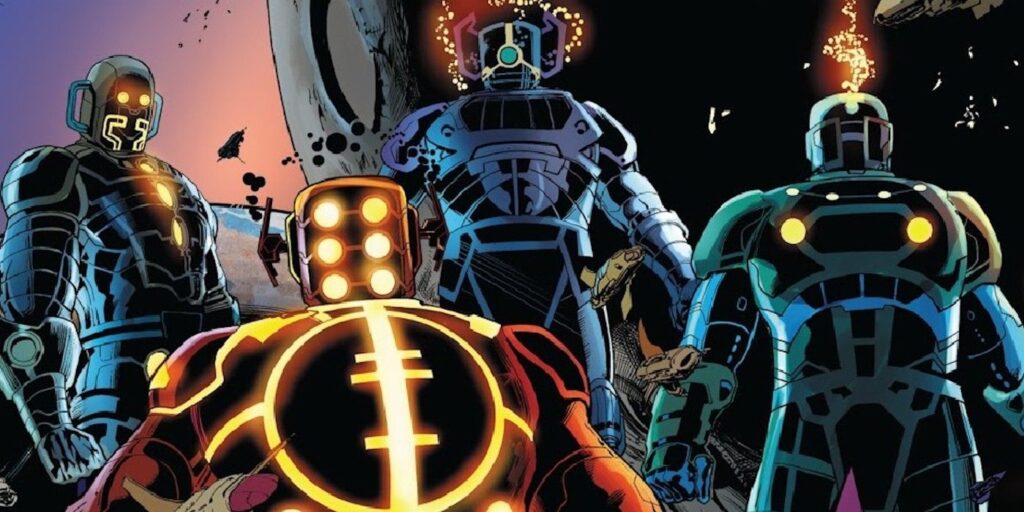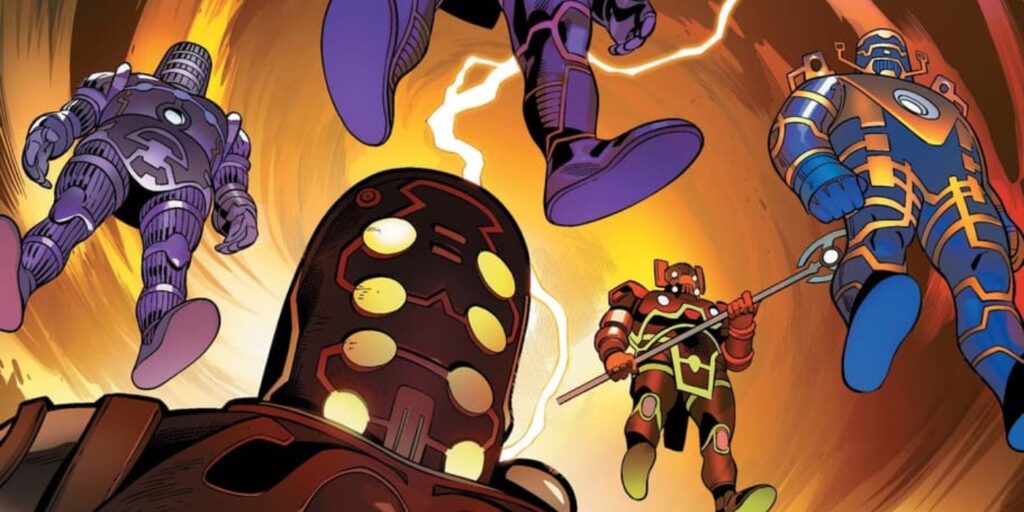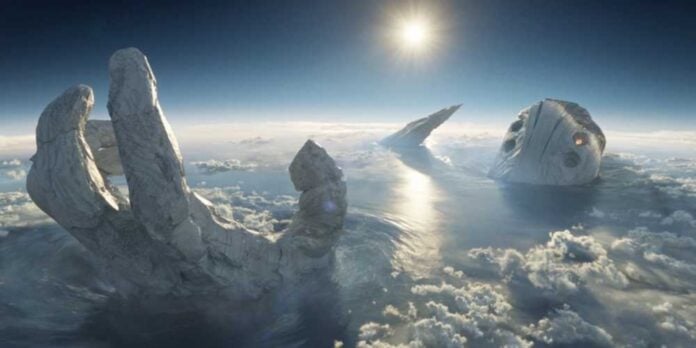The Marvel Cinematic Universe has given fans some of the most unforgettable heroes and villains of all time. From Tony Stark to Thanos, it would be hard to imagine modern pop culture without Marvel’s cosmic tapestry, right?
Yet, even a franchise as powerful as the MCU can stumble, and few missteps are as glaring as the Celestials. Once envisioned as the architects of creation, the Celestials were meant to bring mythic scale to Marvel’s storytelling. Instead, they’ve become the universe’s most neglected and misunderstood entities.
How The Celestials Fell From Cosmic Glory

In Longshots #2, written by Gerry Duggan and Jonathan Hickman, the comics take a rare jab at their own lore. When the villainous Mojo grows frustrated with his latest project, he snaps, “Celestials… they just suck. They don’t even talk!” It’s a line dripping with sarcasm, but also self-awareness. In one sentence, Marvel acknowledges what many fans have quietly thought for years: the Celestials have lost their magic.
Related: 15 Marvel Characters With Tragic Origin Stories, Ranked
To understand where it all went wrong, we need to remember where it began. The Celestials were born from the imagination of Jack “The King” Kirby, the same mind that gave us the Eternals, the New Gods, and Galactus. These towering beings weren’t meant to be villains or heroes. They were the architects of life itself, ancient judges who experimented with early civilizations and decided who was worthy to survive.
In the comics, the Celestials carried a sense of awe and fear. They were living metaphors for the unknowable. Their silence wasn’t a flaw; it was the point. They represented the sheer indifference of the cosmos. They had power without empathy. When the MCU announced ‘Eternals’ in 2021, fans hoped this was the moment the Celestials would finally get their due. The film promised to expand Marvel’s mythos beyond the familiar territory of Earth’s heroes and introduce audiences to the architects of existence.
But the result was complicated. While visually stunning, ‘Eternals’ struggled to balance its ambitious ideas with character development and pacing. The Celestials, despite their striking design, felt more like distant CGI set pieces than living gods. By the end of the movie, the emergence of Tiamut, a massive Celestial frozen mid-birth within the Indian Ocean, should have been a world-shaking event. Instead, it became a forgotten background detail. The MCU barely referenced it afterward.
The Celestials Might Still Have A Chance At Redemption

Enter Longshots #2, the issue where Marvel seems to finally break the fourth wall about its own misfire. Mojo, the egotistical interdimensional producer obsessed with ratings, rants that audiences hate the Celestials. He claims that they’re boring, unrelatable, and fundamentally flawed as characters. His assistant even admits that no amount of creative tweaking could make them interesting. It’s both a meta joke and a confession. Marvel knows the Celestials didn’t resonate the way they hoped.
In case you missed it: Rocket Might’ve Died In ‘Marvel Zombies’ But MCU Has Big Plans For Him
And perhaps, that’s not entirely their fault. The MCU thrives on personality, from Iron Man’s wit to Loki’s mischief. Even its most cosmic figures, like Thanos, succeed because they blend humanity with grandeur. The Celestials, by design, lack that human spark. They’re abstract, emotionless, and enigmatic, perfect for comic book myth, but difficult for blockbuster storytelling. That said, calling them a failure feels unfair. The Celestials have always worked best as symbols rather than characters.
Their power lies in mystery. If Marvel leaned into that, instead of trying to humanize them, the Celestials could still find redemption. The comics, for instance, have handled them far better in recent years. From the introduction of The First Firmament, the being that predates all creation, to arcs where the Avengers harness a dead Celestial as their headquarters, Marvel has proven that these entities can be both epic and meaningful when treated with reverence. The problem isn’t the concept; it’s how it’s translated. In short, the celestials have untapped potential.





